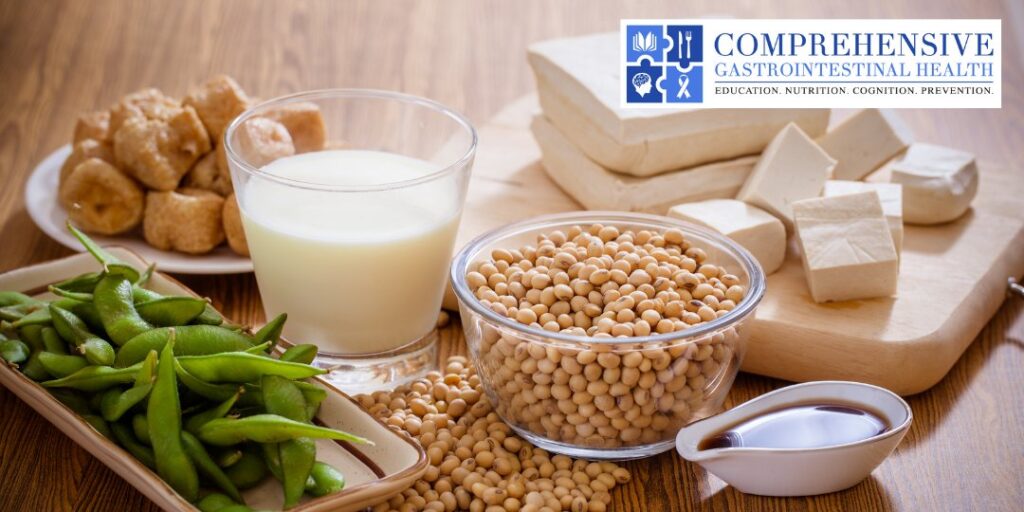The Benefits of Soy

The Benefits of Soy
by Julie Adams, RD
If whole soy products aren’t in your diet, it may be worth taking a second look. The least processed soy products (e.g. edamame, unsweetened soy milk, tofu, tempeh and miso) offer a wide array of benefits, including a reduced risk of breast cancer and improved heart and bone health.
LOWER RISK OF BREAST CANCER
Despite its many benefits, confusion still swirls around soy’s “phytoestrogens” and hormone-sensitive cancer, particularly breast cancer. Over the past 30 years and over 3,000 studies, there have been multiple “twists and turns” in the evidence. In the 1990’s, animal studies linked soy isoflavones to increased tumor growth in mice. This misguided clinicians to advise patients with or at high risk of breast cancer to limit intake of soy foods. Since then, clinical and observational data on humans have resoundingly contradicted earlier mouse studies based on the fact that soy isoflavones, similar in structure to human estrogen, function very differently. The Shanghai Breast Cancer Survival Study, for instance, showed significantly decreased risk of breast cancer reoccurrence and mortality with soy consumption in over 7,000 participants. Follow-up studies in the U.S. and China replicated these findings and were summarized in meta-analyses in 2013 and 2019. Overall, soy was found to be protective in both estrogen-positive and estrogen-negative patients. Further, mounting evidence shows that soy intake during childhood and adolescence is protective against the disease. Today, the American Cancer Society, the American Institute for Cancer Research, the World Cancer Research Fund International and the Canadian Cancer Society, all support the safety of eating soy products.
Why Soy is Protective
Researchers believe that soy isoflavones help sustain healthy estrogen signaling levels. Estrogen hormones work by binding to receptors on cells. When too much estrogen binds to its receptor, it can trigger certain cancer cells to grow out of control in some people. However, there are two kinds of estrogen receptors in the body: alpha and beta. Soy isoflavones preferentially bind to beta receptors, which inhibit the growth-promoting effects of estrogen hormone.
Other Important Benefits
Whole soy products offer high quality plant protein that can help lower LDL-cholesterol and improve cardiovascular and bone health. The Shanghai Women’s Health Study also revealed that higher soy intake levels resulted in less inflammation that contributes to cancer, type 2 diabetes and heart disease. Whole soy products lack artery-clogging saturated fat, so replacing animal protein with whole soy can improve heart health. The benefits also extend to bone health. A 2021 meta-analysis concluded that soy isoflavone intake coincides with increased bone formation and reduced bone resorption markers.
Five Ways to Add Soy in your Diet
It’s easy to reap the benefits of soy’s plant-protein, B-vitamins, fiber, potassium, and magnesium.
-
- Top salads with roasted soy nuts
- Blend smoothies with unsweetened soy milk
- Puree silken tofu with taco seasoning and serve with baked chips
- Grill extra-firm tofu chunks for shish kabobs
- Replace half the cream cheese with pureed tofu for a healthier cheesecake treat
Comprehensive Gastrointestinal Health’s team of Registered Dietitians can help you transition to other plant-based alternatives. These services are often covered by insurance. Please call 224-407-4400 or log onto www.compgihealth.com for more information or to make an appointment.
